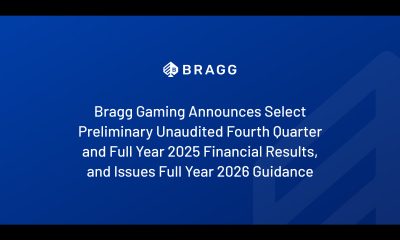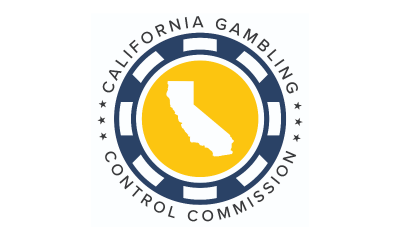Latest News
Enteractive launches Engager: a mobile-first player engagement service

Extension to (Re)Activation Cloud takes personalisation to next level
Enteractive, the global leader in player reactivation and retention for the iGaming industry, has announced an evolutionary step in personalised player engagement with their new player-centric retention mobile service Engager, part of the (Re)Activation Cloud suite.
The launch of Engager marks the first time the industry has seen such personalisation in the field of iGaming CRM and player engagement. Engager offers the ability to truly connect with players on their terms. Through a combination of technology and real human interaction, Enteractive’s approach to CRM converts otherwise unreachable player segments as well as delivering a player experience that treats each one as an MVP.
With fully customisable brand styling for each operator, Engager is a player-facing mobile interface extension of the (Re)Activation Cloud platform. With it, Enteractive’s reactivation agents can reach out to player databases more effectively, offering the players various contact options for engagement, whether verbal via a scheduled call, or using the chat function built directly into Engager’s UI.
Excited about the launch, Mikael Hansson, explained, “We’re constantly innovating to improve services for our operator partners, and the Engager is a result of insights from thousands of players over the years. As an extension service to (Re)Activation Cloud, Engager will put the players’ needs first, as well as prompting a better, more personalised brand experience from the moment we initiate contact.”
Engager generates a text-message including a unique URL for each and every player, and through that mobile web-service they can access Engager to schedule a call-back, initiate a live-chat or a voice call with an Enteractive agent.
All player interaction is a fully branded experience aligned with each operator’s B2C site, and the Engager platform is available across multiple languages to serve most operator markets. The player perception will be to interact directly with the brand itself.
“Through our technology-first approach,” continues Hansson, “we’ve developed scalable player engagement services which can be deployed in any market globally to have a near-instant impact on operators’ bottom line revenues. While some say this level of personalisation is neither possible, nor affordable, our services deliver additional revenue generation for our partners on a daily basis.”
Enteractive has more than twelve years experience in player reactivation, and is in the top four traffic generators globally for the iGaming sector.
Powered by WPeMatico
Latest News
NdP INTERAZAR 2026 – Participación de Melilla en Interazar

Interazar reunirá de nuevo a Operadores, empresas y administraciones en Madrid los próximos días 28 y 29 de abril
Interazar volverá a ser el gran escaparate donde se mide el pulso real de la industria nacional, y en esta nueva edición contará nuevamente con la participación activa de la Ciudad Autónoma de Melilla, que refuerza así su compromiso con un Sector clave para su estrategia de crecimiento económico y tecnológico.
En este contexto, Melilla llega a la Feria Española del Juego los próximos días 28 y 29 de abril con la intención de seguir ganando visibilidad como destino atractivo para el Juego online y para las empresas tecnológicas que orbitan en torno al Sector. La ciudad ha ido construyendo un entorno competitivo basado en un marco fiscal favorable, acompañamiento institucional y una apuesta clara por la innovación aplicada al Juego.
Interazar se presenta, así, como un escenario natural para seguir avanzando en esta estrategia. La participación de Melilla refleja una estrategia continuada, con resultados visibles, que busca afianzar su posición como uno de los polos emergentes del Juego online y la innovación en España.
The post NdP INTERAZAR 2026 – Participación de Melilla en Interazar appeared first on Americas iGaming & Sports Betting News.
Conferences
SportsGrid to return to NEXT NYC 2026

Tuesday 3rd March 2026 – SportsGrid has confirmed its renewed media partnership with NEXT.io and will attend NEXT Summit: New York to cover key discussions and insights from North America’s premier iGaming and sports betting event. The content will be syndicated across SportsGrid’s streaming and digital platforms.
NEXT Summit: New York, in partnership with Morgan Stanley, will take place from 10–11 March at Convene 225 Liberty Street, bringing together 1,400 senior-level delegates for two days of high-impact content and networking.
This year, Emerging Verticals will accompany NEXT Summit: New York, providing a dedicated focus on the fast-growing sectors reshaping the industry — including sweepstakes, micro-markets, crypto, esports, new betting formats, and the evolving intersection of technology and capital.
Now in its fifth edition, the Summit continues to deliver insider knowledge, high-level networking, and direct access to the latest innovations shaping the future of the industry.
Across the two days, leaders from the most influential operators, investment firms, regulators, and technology providers will take to the stage.
Confirmed speakers include:
- Adam Greenblatt, CEO of BetMGM;
- Adam Rosenberg, Senior Advisor, Gaming & Leisure at Blackstone;
- Benjie Cherniak, Principal at Avenue H Capital;
- Lloyd Danzig, Managing Partner at Sharp Alpha Advisors;
- Roger Ehrenberg, Managing Partner at Eberg Capital;
- Ramy Ibrahim, Managing Director at Moelis & Company;
- Joey Levy, Founder and CEO of Betr;
- and Gavin Isaacs, Former CEO of Entain.
The programme will also feature voices from across the regulatory, legal and association landscape including:
- Tres York, VP of Government Relations at the American Gaming Association;
- Paul Burns, President & CEO of the Canadian Gaming Association;
- Kelci S. Binau, Gaming Law Attorney at McDonald Carano;
- and Katie Lever, General Counsel, Chief Privacy Officer & Corporate Secretary at Great Canadian Gaming Corporation.
From the casino floor to emerging tech and capital markets, sessions will also include:
- Brooke Hilton, Head of Casino at PointsBet Canada;
- Chris Garrow, Director of Gaming at Prairie Band Casino & Resort;
- Davis Catlin, Managing Partner at Discerning Capital;
- Jeffrey Haas, Venture Partner at DreamCraft VC;
- Jamison Selby, CEO of Rubystone;
- Desiree Dickerson, Founder of THNDR;
- Kevin Scott, Chief Technology Officer at PGA of America;
- and Darren Woodson, Former NFL Player.
“NEXT Summit: New York continues to set the standard as North America’s premier meeting point for senior leaders in online sports betting and iGaming. With Emerging Verticals joining the Summit this year, the conversations are expanding into some of the most disruptive and fast-moving areas of the industry. We’re excited to once again partner with NEXT.io and bring on-the-ground coverage of the event’s most important discussions to a wider audience across SportsGrid’s streaming and digital platforms,” commented Jeremy Stein, CEO, SportsGrid, Inc.
“NEXT Summit: New York is where the industry’s biggest names come together to define the future of online gaming and sports betting,” said Pierre Lindh, Co-Founder & Managing Director at NEXT.io. “With Emerging Verticals accompanying the Summit this year, and more than 1,400 senior decision-makers attending, having SportsGrid on-site strengthens our mission to share critical insights and discussions with the broader iGaming community.”
SportsGrid will be on the ground at NEXT Summit: New York, covering conference sessions, interviews, and key discussions. Content from the event will be syndicated across its streaming video network and relevant media channels, extending the reach of discussions to a broader audience.
This initiative marks the continuation of a long-term collaboration between SportsGrid and NEXT.io, with plans to provide rich, curated content exploring the latest trends, innovations, and developments shaping the global gaming industry.
For more information on NEXT Summit: New York and to register for the event, visit: next.io/summits/newyork/
The post SportsGrid to return to NEXT NYC 2026 appeared first on Americas iGaming & Sports Betting News.
Latest News
GR8 Tech at SAGSE Latam: Where Platform for Champions Meets the Region

GR8 Tech will exhibit at Booth 103 at SAGSE Latam on March 18–19 in Buenos Aires, Argentina.
With Latin America a major growth market for the company, GR8 Tech brings regional expertise and the full platform ecosystem to the floor to showcase capabilities that turn ambitious operators into the next iGaming Champions.
Five flagship solutions make up the lineup, each built for operators competing in dynamic, high-growth markets:
- ULTIM8 Sportsbook—Flexible, high-performance sportsbook perfect for fast-moving Latam markets
- Hyper Turnkey—End-to-end iGaming business infrastructure for fast, reliable market entry and operations
- Crypto Turnkey—A platform built to attract and retain VIP and crypto-first players
- Aff.Tech—Affiliate management that tracks performance and optimizes acquisition across channels
- Infinite Casino Aggregation—A wide game catalog accessible through a single integration
Each solution is part of GR8 Tech’s Platform for Champions—a proposition that goes beyond technology into expertise, genuine partnership, and a community built around pushing each other to the top.
“When people talk about Latam iGaming, Brazil often gets most of the attention, but the opportunity across the rest of the region is substantial and largely underserved by platforms built for larger markets,” said Yevhen Krazhan, CSO at GR8 Tech. “SAGSE Latam is the right room to bring the conversation to the potential of markets like Argentina, Chile, Colombia, Paraguay, Peru, Uruguay, and we’re looking forward to connecting with new partners.”
Book a meeting with the GR8 Tech team at SAGSE Latam and start your move to dominate the region.
The post GR8 Tech at SAGSE Latam: Where Platform for Champions Meets the Region appeared first on Americas iGaming & Sports Betting News.
-

 Adjusted EBITDA7 days ago
Adjusted EBITDA7 days agoBragg Gaming Announces Select Preliminary Unaudited Fourth Quarter and Full Year 2025 Financial Results, and Issues Full Year 2026 Guidance
-

 Bagley-Keene Act7 days ago
Bagley-Keene Act7 days agoCalifornia Gambling Control Commission Issues Critical Guidance on Stakeholder Communications and Ex Parte Rules
-

 iGaming6 days ago
iGaming6 days agoPRAGMATIC PLAY UNEARTHS PROGRESSIVE MULTIPLIERS IN ROLLING IN TREASURES
-

 Comatel5 days ago
Comatel5 days agoCOMATEL CELEBRARÁ UNA FIESTA PARA CIENTOS DE OPERADORES TRAS FINALIZAR EL PRIMER DÍA DE LA FERIA ESPAÑOLA, INTERAZAR
-

 Betty Casino7 days ago
Betty Casino7 days agoBetty Casino Announces Partnerships with Toronto FC and Toronto Argonauts
-

 Africa7 days ago
Africa7 days agoGroove Targets Africa’s iGaming Boom at SiGMA Cape Town 2026
-

 Australia7 days ago
Australia7 days agoTabcorp Pays $158,400 Penalty for Taking Illegal In-Play Sports Bets
-

 Booming Games6 days ago
Booming Games6 days agoBooming Games Introduces Instastrike, the Latest Diamond Hits Trio



















